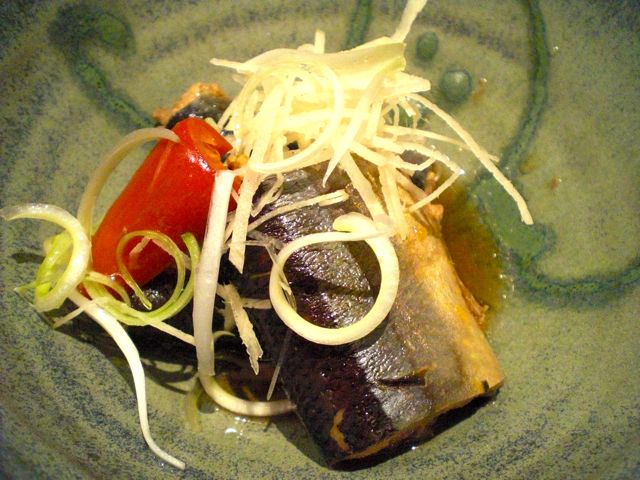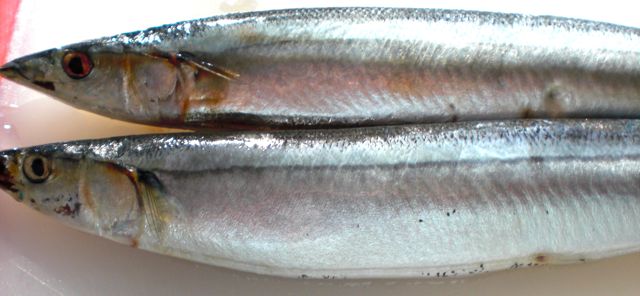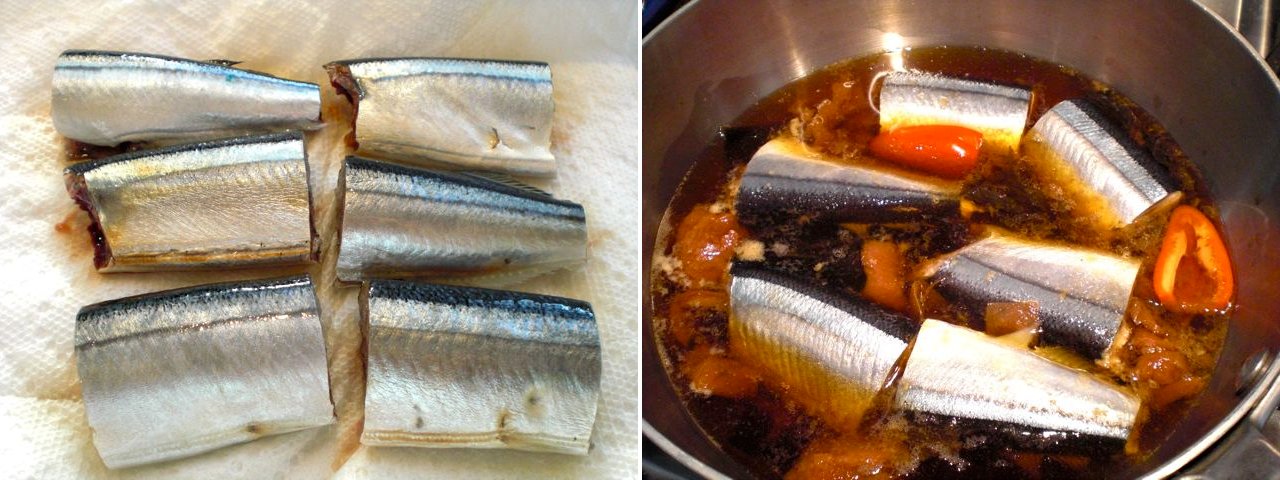This was surprisingly good. The mild heat from Jalapeno was very nice. The meat was well seasoned and not dry and also much easier to remove from the bones compared to grilled sanma. For frozen sanma, this method of preparation appears better than grilling.
Most recent post
▼
Wednesday, October 13, 2010
Stewed Pacific saury with Umeboshi さんまの梅煮
I posted sanma previously but I had two more frozen sanma left. I pondered what to make. Since it was a bit dry when grilled, I decided to make stewed sanma.

Here are two remaining sanma thawed (below). The innards are traditionally kept for this dish. Since this was previously frozen, I removed the innards. I cut the fish in three equal size potions.

I washed and soaked the fish in salted cold water for 5 minutes to firm up the meat of the fish and then removed the excess moisture using paper towels (below left). For simmerig liquid, I first soaked two 2-inch long dried kelp pieces in 1 cup of cold water for a few hours. I placed the hydrated kelp pieces in the bottom of the sauce pan (to prevent the fish from sticking to the bottom of the pan). To the remaining broth (the kelp absorbed water, about 2/3 cup remained), I added mirin (2 tbs), sake (2 tbs), soy sauce (2 tbs), and rice vinegar (2 tsp). I also added the shredded meat of umeboshi (two) as well as their stones. Since I had ripe (red) Jalapeno peppers from our herb garden, I halved and seeded them but left the veins on and added them to the simmering liquid for some heat (or use dried red pepper). When it came to a simmer, I placed the fish into the pan. I put on a lid and simmered for 20 minutes and then let it cool in the liquid. Actually, we did not eat this the same day I made it. I put the pan in the refrigerator after it cooled to room temperature. I warmed it up the next day and served at room temperature.

I served it with a very thin julienne of fresh ginger (soaked in water for 10-15 minutes to remove the harshness) called "hari shouga" 針ショウガ and thin strips of scallion cut lengthwise and soaked in water. This preparation of scallion or "negi" is called "shiraga negi"白髪ねぎ or "white hair scallion". Since I did not have a thick Japanese scallion called "Tokyo scallion" in the U.S., it was difficult to make this from a small American green onion.

No comments:
Post a Comment
When you post a comment on the post, it does not appear immediately pending moderation.